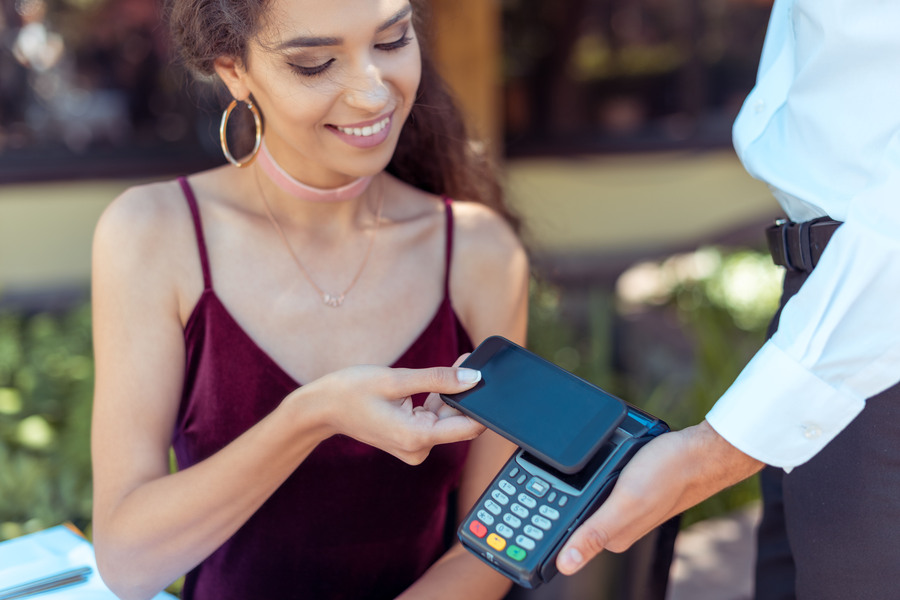When it comes to taking payments over the phone, business owners often wonder about the safety and security of these transactions. In today’s digital age, where cybercrime is a constant concern, it is essential to assess the risks and take the necessary precautions.
Fortunately, with technological advancements, secure options are available that minimise the risk of fraud and protect sensitive customer payment details. One such solution is a virtual terminal, which allows businesses to process card payments over the phone.
Using encryption and other fraud protection measures, virtual terminals provide a secure environment for card-not-present transactions. This virtual terminal solution replaces the need for physical card machines or card readers, reducing the risk of human error or mishandling of card details.
Business owners must partner with reputable payment providers or merchant account providers offering secure payment solutions with fraud detection and prevention measures. By utilising these services, businesses can confidently process card payments over the phone, protecting their customers and business from the risk of credit card fraud.
How safe are phone payments?
One of the biggest concerns with phone payments is the potential for credit card fraud. Without the physical presence of the card and the customer, there is a higher risk of unauthorised transactions or stolen card details.
To mitigate these risks, businesses should take certain precautions when accepting phone payments. First and foremost, maintaining PCI compliance is crucial. This involves following strict guidelines that major card payment providers set to protect customer payment information. Businesses should avoid writing down card details and instead enter them directly into virtual terminals, which provide a secure environment for processing card-not-present transactions.
Choosing a reliable payment service provider is also essential. Look for providers who have robust compliance procedures in place and offer fraud detection and prevention measures. Non-compliance with PCI standards can result in hefty fines, so partnering with a compliance-focused provider is essential.
How to choose your Payment Provider
When accepting phone payments, choosing the right provider is crucial in ensuring your business’s and your customer’s safety and security. Here are the key factors to consider when selecting a payment provider for phone payments.
First and foremost, compliance with Payment Card Industry (PCI) rules and regulations is essential. PCI standards are designed to protect sensitive customer payment information. Look for a payment provider who fully complies with these standards and follows strict guidelines to safeguard data.

In addition to PCI compliance, it’s important to consider the fraud protection measures offered by the payment provider. Look for providers that offer advanced fraud detection and prevention tools to minimise the risk of fraudulent transactions.
When choosing a payment provider for phone payments, consider the maximum transaction limits they offer. This is especially important if your business typically processes high-value transactions over the phone.
Fast cash flow is also a benefit to consider. Choose a payment provider that offers quick and reliable payouts to ensure a seamless payment process.
Lastly, excellent customer service should not be overlooked. Select a provider that offers responsive customer support to address any questions or issues.
Regulations for Phone Payments
When accepting card payments over the phone, merchants must adhere to Payment Card Industry Data Security Standard (PCI DSS) regulations. These regulations are in place to protect the sensitive cardholder data provided by customers during the payment process.
However, it’s important to note that some merchant service providers may charge additional fees for PCI DSS compliance. This can be an unexpected cost for merchants, affecting their profit margins.
PCI DSS compliance is essential for businesses that handle card payments. Adhering to the Payment Card Industry Data Security Standard ensures the protection of sensitive customer data, enhances security measures, and builds trust with clients, creating a secure and reliable payment environment.

Security systems for Phone Payments
When taking payments over the phone, implementing the right security systems is crucial to ensuring the safety of transactions. Here are some important security systems that can be implemented for phone payments:
Encryption:
Encryption is converting sensitive payment information into unreadable code. It ensures that data transmitted over the phone is securely protected from unauthorised access. By encrypting payment details, merchants can prevent hackers from stealing valuable card information.
Tokenisation
Tokenisation involves replacing credit card data with a unique identifier or token. This token is used to represent the actual card details during the transaction. It adds an extra layer of security by ensuring that sensitive information is not stored or transmitted in its original form, reducing the risk of data breaches.
Secure Voice Recording:
Secure voice recording systems capture and store phone conversations in a secure environment. This helps in verifying payment details and resolving disputes. Implementing secure voice recording protects sensitive customer information and provides evidence in case of fraudulent or disputed transactions.
Multi-factor Authentication:
Multi-factor authentication requires users to provide multiple pieces of information to verify their identity. This can include something the user knows (like a password), something they have (like a one-time passcode sent to their phone), or something they are (like a fingerprint). By implementing multi-factor authentication, phone payments become more secure as it adds an extra layer of verification.
Implementing these security systems is of utmost importance in ensuring the safety of phone payment transactions. It helps protect sensitive customer information, reduces the risk of fraudulent activities, and enhances customer trust and confidence in the payment process. By incorporating these systems, businesses can ensure secure and seamless phone payment experiences for their customers.
Frequently Asked Questions
How safe are phone payments?
Phone payments can be quite secure, provided the right precautions are taken. Using a virtual terminal that employs encryption and fraud protection measures helps to create a secure environment for card-not-present transactions. Additionally, maintaining PCI compliance is crucial. This means following strict guidelines set by major card payment providers to protect customer payment information, such as entering card details directly into secure systems and avoiding writing them down.
How should I choose my payment provider for phone payments?
Selecting the right payment provider is critical. Ensure that your provider is compliant with Payment Card Industry (PCI) standards, which are designed to protect sensitive customer payment information. Also, assess the fraud protection measures they offer, the responsiveness of their customer support, the speed of their payouts, and whether their transaction limits meet your business needs. A provider that aligns well with these criteria will enhance the security and efficiency of your phone payment transactions.
What regulations must I follow for phone payments?
When accepting card payments over the phone, it’s essential to adhere to the Payment Card Industry Data Security Standard (PCI DSS). Compliance with PCI DSS ensures that sensitive cardholder data is protected throughout the transaction process. Be aware that some providers may charge additional fees for PCI compliance, which could impact your profit margins.
What security systems should I implement for phone payments?
To ensure the safety of phone payments, consider implementing the following security systems:
Encryption: This converts sensitive information into unreadable code, protecting data during transmission.
Tokenisation: This replaces credit card details with a unique token during transactions, reducing the risk of data breaches.
Secure Voice Recording: This system captures and stores phone conversations securely, aiding in dispute resolution and verifying payment details.
Multi-factor Authentication: This adds an extra verification layer by requiring multiple forms of identity confirmation (e.g., a password, a code sent to a phone, or a fingerprint).
Final Words
Choosing a reliable payment provider, staying updated with the latest security practices, and implementing comprehensive security systems like encryption, tokenization, secure voice recording, and multi-factor authentication are crucial steps to ensure that your phone payment processes are as secure as possible. By being diligent and proactive, businesses can enjoy the flexibility and convenience of phone payments without compromising on security.
We encourage business owners to continuously evaluate and improve their payment security practices. If you have any further questions about setting up secure phone payment systems or need more detailed advice on maintaining compliance and security, feel free to leave a comment below. Let’s work together to create safer and more efficient payment environments for everyone.


